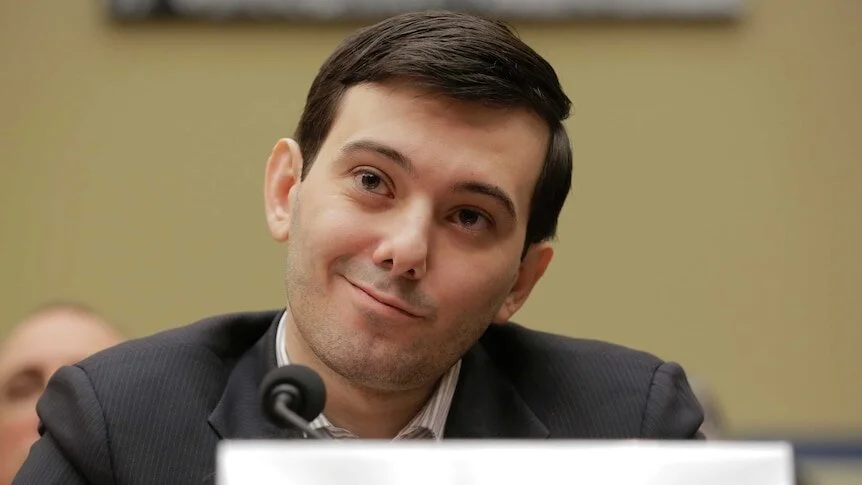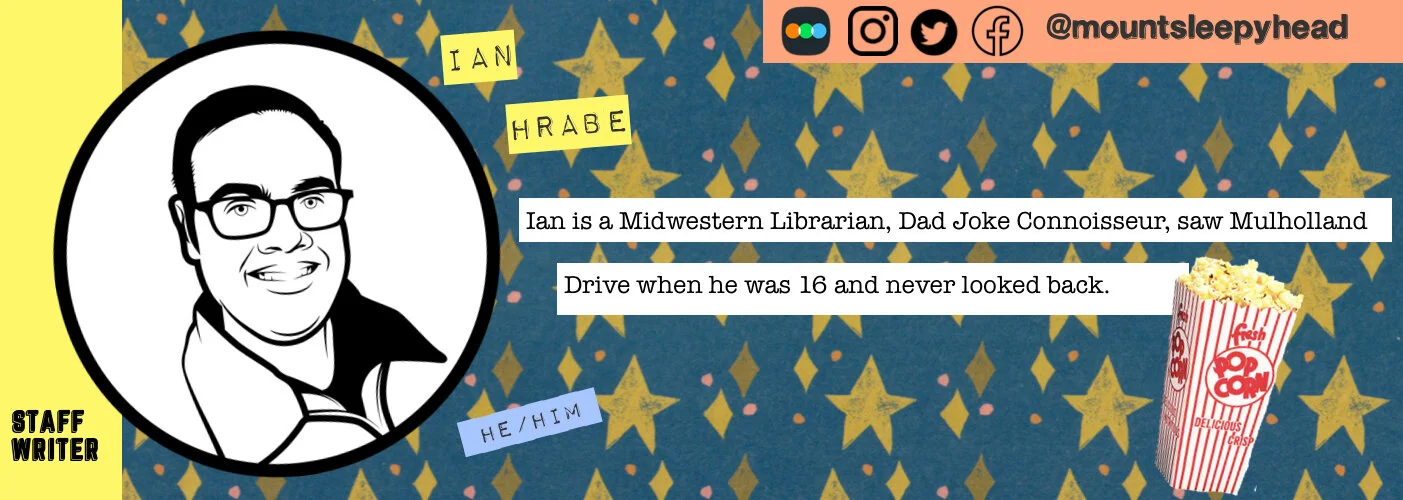PHARMA BRO undermines its own message with gimmicks
Directed by Brent Hodge
Featuring Martin Shkreli
Unrated
Running Time: 85 minutes
Available digitally October 5
by Ian Hrabe, Staff Writer
What do you feel when you read the name Martin Shkreli? Do you feel like you are about to throw up in your mouth? Like you want to put your fist through drywall? Like you want to squash his stupid face like the miserable little bug he is? It’s a name that stirs up a lot of emotions and sends you back to those halcyon days of 2015 when Shkreli--then CEO of Turing Pharmaceuticals--jacked up the price of an antiparasitic drug relied upon by people with HIV and otherwise compromised immune systems from $13.50 a pill to $750 a pill. Though price gouging so called “orphan drugs” (i.e. drugs designed to treat a tiny subsection of the population whose patents expire and get scooped up by Big Pharma) is TOTALLY LEGAL, Shkreli became America’s Public Enemy #1 because he’s just such a goddamn hateable prick.
The irony of the whole situation is that Shkreli is merely a symptom of an issue that is peak Late-Stage Capitalism, and the controversy surrounding him was never really about the fact that he was pricing out AIDS patients of the drug they used to treat toxoplasmosis. Though Shkreli was eventually arrested on securities fraud–because in addition to being the Pharma Bro, he was also a hedge fund bro–and it’s likely he ended up in jail primarily because he presented outwardly as a complete sociopath hellbent on self-sabotage. If you’re a judge, he’s an easy one to convict no matter how fair and even-handed you may be. I mean, just look at the courtroom sketches. He’s a monster.
And that’s where Pharma Bro begins: in a comic book store with a psychologist talking about various comic book villains in a lead up to our examination of Shkreli. It’s a fun angle, because Shkreli is the closest thing we had to a real life comic book villain in 2015 (before the whole American government was being run by comic book villains a year later). He was someone who made us feel better about ourselves. As shitty as we all can be, at least we weren’t Martin Shkreli: someone who revelled in his own destructive greed and played with people’s lives like it was some kind of sick game. Given the amount of minable material in the Martin Shkreli saga, and the variety of angles you can take exploring the subject, it feels like a documentary about it would be a slam dunk.
Which is why it is so surprising that this movie is a complete misfire. Despite the strong opening sequence, the next thing we see is the film’s director Brent Hodge in a room with the walls covered in Martin Shkreli related news clippings like he’s a detective doggedly tracking down a serial killer. It’s the tip of the iceberg for Hodge’s “the making of this film is driving me into a downward spiral of insanity” angle that makes the whole movie feel like a parody of this type of documentary. Did I mention this room with all the stuff on the walls is in an apartment the director has rented in Shkreli’s building in New York City? You know, to get inside the head of his subject! It’s the first in a long line of gimmicks that Hodge employs in crafting this deeply unsatisfying film.
The frustrating turns this movie takes are made even more frustrating by the fact that this is a story that needs to be told. We have enough information on Shkreli, and we could really use a damning portrait of the profit-over-people nature of the pharmaceutical industry that Washington DC is beholden to, but instead we get a movie that’s trying too psychoanalyze Shkreli in the shallowest way possible. That doesn’t mean it doesn’t have its moments. The thing Shkreli is second most famous for is paying $2 million for Wu-Tang Clan’s one-of-a-kind album Once Upon a Time in Shaolin and there is a fun sitdown with Ghostface Killah that is pretty fantastic. But then again, Ghostface is balanced out by an interview with alt-right troll and all-around dirtbag Milo Yiannopoulos, which makes the whole affair a net negative (Yiannopoulos’ latest pet project is fundraising for gay conversion therapy, so if his life goal is out asshole Shkreli for the crown of Most Punchable Person on Earth, it’s working).
The worst thing this movie does is it takes its star witness Christine Smythe–billed only as Martin Shkreli’s biographer–and doesn’t tell you who she really is until the last minute. Smythe is a “journalist,” and though she seems to have a slightly sympathetic view of Shkreli, it’s sort of in the vein of when a gossip rag has an “insider source” that spills the tea about a celebrity’s day to day. In the last minute of the film, you learn that Smythe blew up her life when she fell in love with Martin Shkreli when she was writing a story about him. It’s just a shitty twist to a movie that employs gimmick after gimmick when it would have been best to make an honest film about an American monster. By revealing Smythe to be in the tank for Shkreli (which, sad), it totally kneecaps any credibility the film had. Instead of learning something, or seeing the Shkreli saga from a new angle, you come away from this one feeling like someone pulled one over on you for no good reason. It’s one thing when, say, David Lynch hoodwinks me with a gnarly twist that calls everything I just watched into question, it’s another when a seemingly legitimate documentarian does it. Or maybe this really is a parody of a serious documentary, which, in that case, Brent Hodge has made a masterful work of satire.


